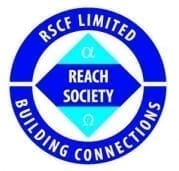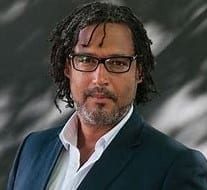David Adetayo Olusoga OBE was born in 1970 and is a British historian, writer, broadcaster, presenter and film-maker. He is Professor of Public History at the University of
Manchester. He has presented historical documentaries on the BBC and contributed to The One Show, a BBC daily programme, and The Guardian newspaper.
Early life and education: Olusoga was born in Lagos, Nigeria, to a Nigerian father and British mother. At five years old, Olusoga migrated to the UK with his mother and grew up
in Gateshead, Tyne and Wear. He was one of a very few non-white people living on
a council estate. By the time he was 14, the National Front had attacked his house on more than one occasion, requiring police protection for him and his family. They were eventually forced to leave as a result of these racist attacks. He later attended the University of Liverpool to study the history of slavery, and in 1994, graduated with a BA (Hons) degree in History; followed by a postgraduate course in broadcast journalism at Leeds Trinity University.
Career: Olusoga began his TV career behind the camera, first as a researcher on the 1999 BBC series Western Front. Realising that Black people were much less visible in the media and historically, Olusoga became a producer of history programmes after university, working from 2005 on programmes such as Namibia: Genocide and the Second Reich, The Lost Pictures of Eugene Smith and Abraham Lincoln: Saint or Sinner?.
Subsequently he became a television presenter, beginning in 2014 with The World's War: Forgotten Soldiers of Empire, about the Indian, African and Asian troops who fought in the First World War, followed by several other documentaries and appearances on BBC
One television's The One Show.
In 2015 it was announced that he would co-present Civilisations, a sequel to Kenneth Clark's 1969 television documentary series Civilisation, alongside the historians Mary
Beard and Simon Schama. His most recent TV series include Black and British: A Forgotten History, The World's War, A House Through Time and the BAFTA award-winning Britain’s Forgotten Slave Owners.
Olusoga has written stand-alone history books as well as ones to accompany his TV series. He is the author of the 2016 book Black and British: A Forgotten History, which was awarded both the Longman–History Today Trustees Award 2017 and the PEN Hessell-Tiltman
Prize 2017.
His other books include The World’s War, which won First World War Book of the Year in 2015, The Kaiser’s Holocaust: Germany’s Forgotten Genocide and the Colonial Roots of Nazism (2011) which he co-authored with Casper Erichsen, and Civilisations (2018). He was also a contributor to the Oxford Companion to Black British History, and has written for The Guardian, The Observer, New Statesman and BBC History magazine. Since June 2018 he has been a member of the board of the Scott Trust, which publishes The Guardian.
Powerlist: Olusoga was included in the 2019 and 2020 editions of the Powerlist, an annual ranking of the 100 most influential Black Britons. In the 2019 New Year’s Honours List. Olusoga was awarded an Officer of the Order of the British Empire (or OBE) for services to history and to community integration.
Professorship: On appointing him as a professor in 2019, the University of Manchester described him as an expert on military history, empire, race and slavery, and "one of the
UK's foremost historians". In May 2019 Olusoga gave his inaugural professorial lecture on "Identity, Britishness and the Windrush" at the University of Manchester.
In response to the global Black Lives Matter movement with protests sparked by the killing of George Floyd, an unarmed African American by the Minnesota Police in the USA,
Olusoga's Black and British: A Forgotten History was re-broadcast on the BBC and made available on BBC Player] along with several other documentaries fronted by him.
Desert Island Discs: In January 2021, Olusoga appeared on BBC Radio 4's, Desert Island Discs, where he discussed his childhood experiences of racism and his love of Blues music. Among his choices of music were "Can't Blame the Youth" by Bob Marley and the
Wailers and "Dark Was the Night, Cold Was the Ground" by Blind Willie Johnson. His luxury item was an acoustic guitar and his choice of book was The Collected Essays, Journalism and Letters of George Orwell: An Age Like This, 1920–40.



